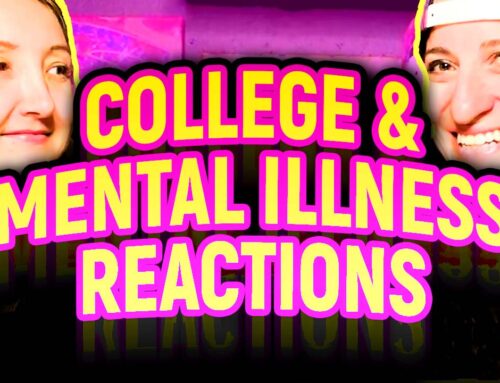Schizophrenia And The City
The Podcast
Schizophrenia And The City is a podcast and video series hosted by two New York City women Michelle Hammer and Cecilia McGough spilling the tea about their lived experiences with schizophrenia and life in NYC. Topics cover a range of everyday New York City life from dating to social entrepreneurship but from the lens of a person living with schizophrenia.
S1 E1 Schizophrenia And The City
In this episode of Schizophrenia and the City, Michelle Hammer and Cecilia McGough are sitting back-to-back. Why? They are demonstrating something called deep listening, where one person in the conversation talks uninterrupted for three minutes, and the other simply listens without thinking of responses. The back-to-back setup is to ensure that no one gives any visual cues, which can affect the flow of the conversation. After both people have spoken for three minutes, then there is a normal back-and-forth conversation. This type of conversation allows Michelle to go on a rant about her terrible landlord, among other things. Due to COVID-19, everybody has moved out of New York City and Michelle needs to find a roommate, but nobody will move in because the landlord will not lower the rent. The state of the apartment is not even good to begin with. However, the landlord only complains about how much he wants to go to Florida and leave New York behind, and stubbornly will not listen to Michelle when she tries to tell him that other apartments are renting for much less than the apartment she is in. The problem of moving, money, and COVID all escalate into an unpleasantly overblown conflagration. To make it worse, all of Michelle’s relatives are very successful and, unlike Michelle, do not have money issues. That, and everything else, makes her feel terrible.
Similarly, Cecilia is having a very tough time. COVID has turned the world upside down, and the housing situation in New York is also an unfortunate reality for Cecilia. To top it all off, her triggers are being activated once again, almost as if her exposure therapy was “reset” by the pandemic. Staying in a house for many days made coming back to the bustle of New York and all its social anxieties very jarring. She finds herself holding her breath when she talks to strangers, which she did even before the troubles of the pandemic. Similar to Michelle’s predicament, Cecilia’s roommates are very temporary. This is a big problem for her, because she can’t live by herself, or else her hallucinations get out of control. Having a roommate helps her control them, but the pandemic has thrown that system out of whack. The generally elevated stress in their lives due to the pandemic makes anxiety a chronic sensation. Both of them start worrying about every little thing, and the tiniest stresses and anxieties are blown far out of proportion. To make it worse, the generally stressful experience of the pandemic is, in itself, a psychosis trigger.
COVID has also changed both Michelle’s and Cecilia’s relationship with the news. Before, they used to watch the news frequently. Now, however, they almost completely avoid it. For Cecilia, it often is a trigger for her paranoia, and Michelle often finds that the news never actually answers or assuages any of the questions or anxieties that everyone is experiencing due to the pandemic. The looming eviction crisis in New York is very heartbreaking to Cecilia, because many members of the psychosis community are especially vulnerable to housing and food insecurity. Having been housing insecure before, Cecilia knows that it is an especially traumatic experience for schizophrenics and something that nobody deserves to feel.
During these troubling (to say the least) times, it is very important to really listen to how other people are doing. Not just asking how they are doing, but really asking them. Because no matter what they say, nobody is doing well during the pandemic, and this is especially true for people with psychosis.





